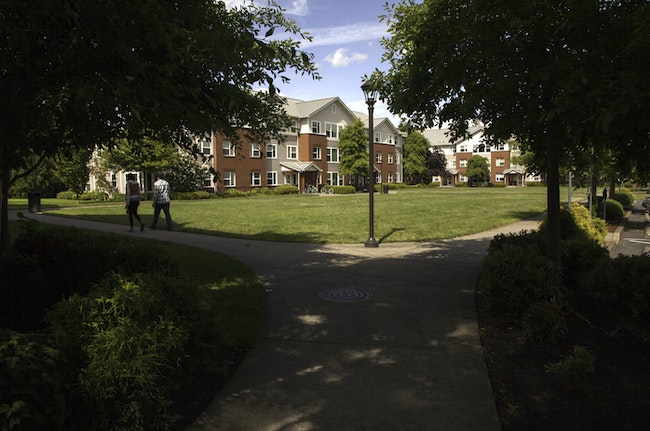Officials from Oregon’s seven public universities say they need more than $1 billion over the next two years to maintain services amid inflation and to avoid deep cuts and layoffs.
That’s $100 million more than funding the state’s seven universities received in the last biennium for general support.
At a public hearing of the Joint Subcommittee on Education on Wednesday, Southern Oregon University President Rick Bailey told lawmakers that the current funding level will not be sufficient for the schools in the next biennium given inflation.
“This means that students will have to fund inflation on the majority of our budgets,” he said.
University administrators have begun restructuring and considering layoffs amid an expected $5 million deficit for the coming school year.

All seven of Oregon’s public universities have announced tuition increases for the next school year, in a regular pattern of annual increases in tuition during the last two decades. None in the upcoming school year is raising tuition above 5%, which would require approval from the Higher Education Coordinating Commission.
Oregon has more than 78,000 full-time students at its seven public universities – Eastern Oregon University, Oregon Institute of Technology, Oregon State University, Portland State University, Southern Oregon University, University of Oregon and Western Oregon University.
Their tuition covers 50% or more of university costs, one of the highest proportions in the nation, according to a recent report commissioned by lawmakers from the National Center for Higher Education Management Systems, a nonprofit think tank in Colorado. About 25 years ago, the state paid for up to 75% of the cost of each full-time employee at a university. Now, it pays for about 50% or less, researchers found.
The state’s per-pupil funding for full-time college students is about $5,600 annually, around $3,000 less than what California and Washington provide.
Lawmakers heard from a Southern Oregon University student working three jobs to pay for her tuition and living expenses. Annual tuition for Oregon residents attending the university full-time this year topped $9,400 dollars.
“I have good friends that have dropped out because they fell too far behind on their account, or took out as many loans as they possibly could, and still could not afford it,” she said.
Rob Fullmer, an information technology specialist at Portland State University, said if funding isn’t increased, tuition hikes will push Oregon youth further away from choosing college over joining the workforce after high school.
“Prospective students of Oregon’s higher education system are cost conscious. For the past decade, they’ve had to carefully weigh the price of college against any potential future earnings they expect they’ll enjoy – if they manage to get the degree – versus the lost wages and time they spend earning one,” he told lawmakers. “It’s been a close call. But more and more of them have decided to forgo that degree.”
Other higher ed requests
Lawmakers are also facing other higher education requests.
The Oregon Council of Presidents, an advocacy group comprised of the seven university presidents and the president of Oregon Health & Science University, is asking the Legislature to double the budget for the Oregon Opportunity Grant for the biennium, from $200 million to $400 million. The grant is the largest state-funded, need-based grant program for Oregon residents. The council is also calling on the state to allocate $40 million to the Oregon Student Tribal Grant in the next two-year budget, which will start July 1 and run through June 2025. The program was launched in 2022 with $19 million for the 2022-23 school year.
Megan Van Pelt, a student at the University of Oregon and a member of the Confederated Tribes of the Umatilla Indian Reservation, is one of 450 Native students who received the grant last year. At the hearing she said it had been instrumental in alleviating the financial burden of attending a four-year college, and allowed her to get involved on campus and to serve as co-director of the Native American Student Union.
“This grant has not only enabled me to pursue my academic goals, but this grant has allowed me to be a normal student,” she said.
;occ
Oregon Capital Chronicle is part of States Newsroom, a network of news bureaus supported by grants and a coalition of donors as a 501c(3) public charity. Oregon Capital Chronicle maintains editorial independence. Contact Editor Lynne Terry for questions: [email protected]. Follow Oregon Capital Chronicle on Facebook and Twitter.
STORY TIP OR IDEA? Send an email to Salem Reporter’s news team: [email protected].

Alex Baumhardt has been a national radio producer focusing on education for American Public Media since 2017. She has reported from the Arctic to the Antarctic for national and international media, and from Minnesota and Oregon for The Washington Post. She previously worked in Iceland and Qatar and was a Fulbright scholar in Spain where she earned a master's degree in digital media. She's been a kayaking guide in Alaska, farmed on four continents and worked the night shift at several bakeries to support her reporting along the way.









